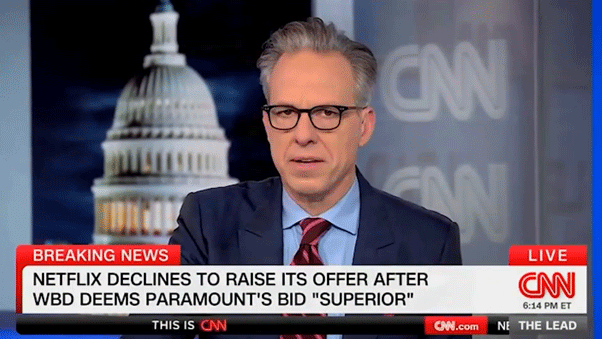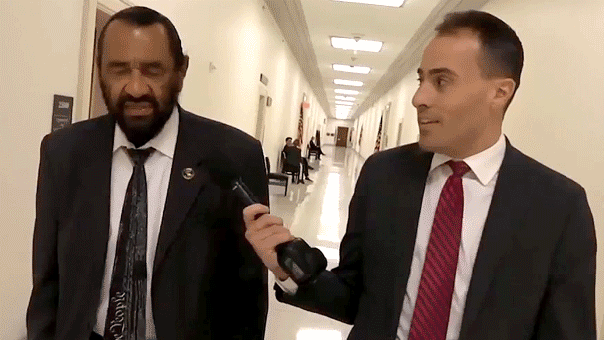Detransitioner shares story after castration surgery
Kobe discusses his journey and regrets about 'gender-affirming care' in the hopes others will not do the procedures.
A young male, who formerly identified as a trans woman, who was castrated and became a "patient for life" as part of "gender-affirming care," wants to warn others not to follow in his footsteps. He discussed his story of resilience and learning to accept himself for who he is, for the first time, with Fox News Digital.
Kobe, whose name is being withheld for privacy reasons, had "checked every box for what they call a trans adolescent." He was always "effeminate" and loved pink and playing with Barbies. If he had never been exposed to gender ideology, he says he probably "would have just stayed a feminine boy. And there's nothing wrong with that."
"I felt unlovable as an effeminate man in society and everything. A feminine boy, actually. I was never a man, I'm trying to reclaim my manhood now and everything. It's hard. I have breasts, I have the hip development of a woman, because I started the estrogen young. I have no gonads. You know, it's hard. My skull never really masculinized."
Kobe, in retrospect, looks back at the medical interventions as a subconscious use of "self-harm." During his early teenage years, he was struggling with internalized homophobia. "I mean, I saw it as a way out of my homosexuality, if that makes any sense."
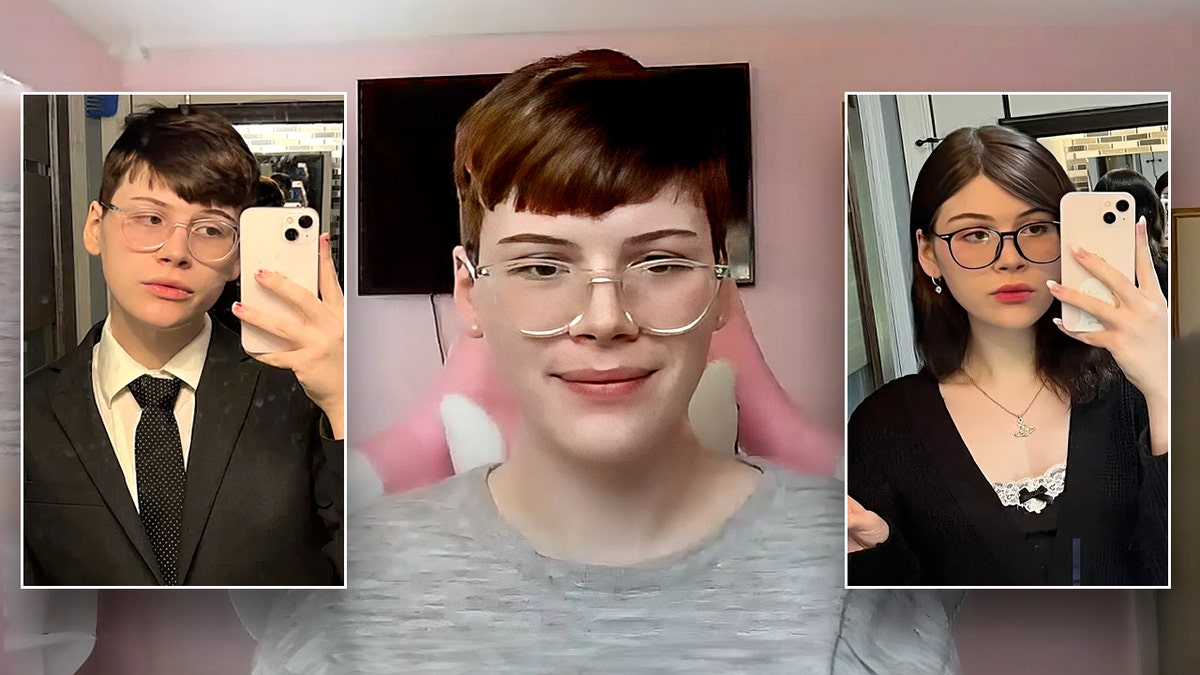
Kobe shares his story detransitioning and discovering himself in an interview with Fox News Digital. (Photos used with permission to Fox News Digital)
However, he didn't realize these truths until he had his surgery.
"I was like, 'Oh, wow, this is so great. I'm locked in my transition. . . . But then everything started to crack, and I couldn't ignore the complications," Kobe said. "I couldn't ignore that I mutilated myself pretty much with the permission of a psychiatrist. It's insane now, looking back. It's just self-harm, you know."
Kobe first encountered the idea of switching genders on YouTube.
"And I said, ‘Oh, you can do this.’ You know, I don't have to be a gay guy. I don't have to be an embarrassment. And all this horrible stuff that I thought about my homosexuality, and it was like a light bulb. It was like, ‘This is a way out,’" he said. "I thought it was."
Kobe told his parents that he was transgender at age 11. At 13, Kobe said that older trans people online instructed him, as well as other kids, to "play the suicide card" in order to get chemical interventions.
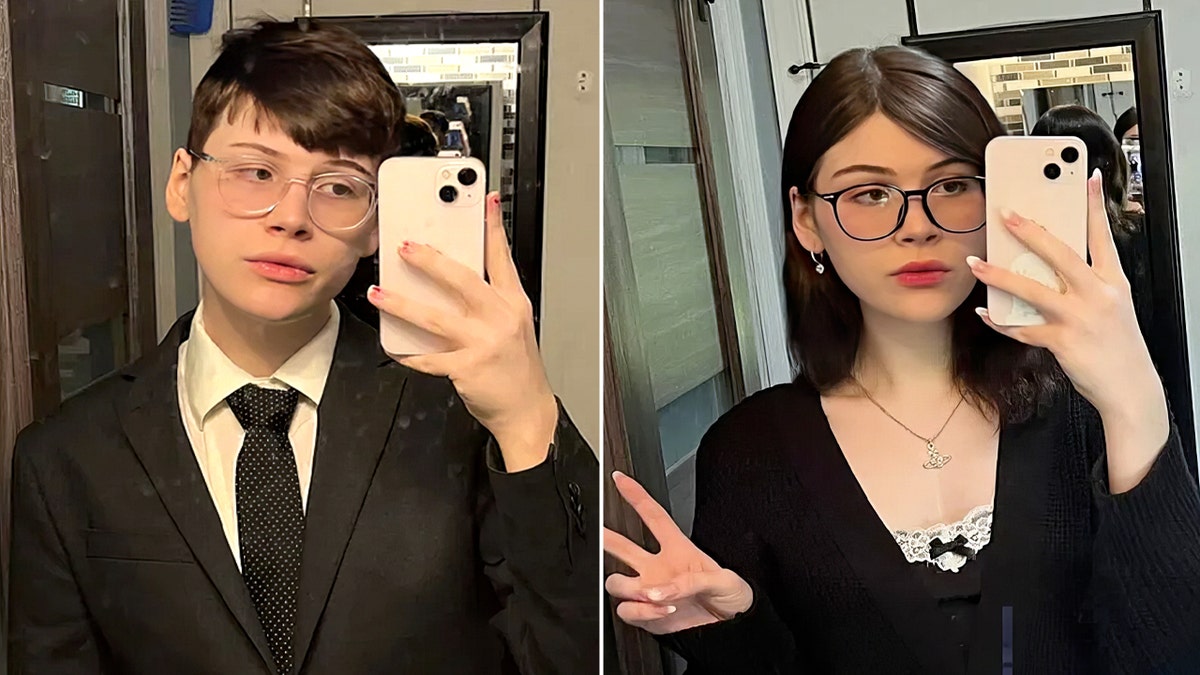
Kobe said his transitioning and detransitioning have led to ongoing medical issues. (Photos used with permission to Fox News Digital)
"I started using, like, ‘the suicide tactics,’ because that's what they are. That's what they tell us all to do. . . . I don't want to use the word ‘groom,’ but we are like taught. I guess the older trans people teach us to say that stuff to get the health care and everything. And I mean, there were times when I thought I was genuinely suicidal over gender dysphoria, but it was I think it was all just stuff that was in my head. I don't think I would have ever been suicidal about being biologically male if I had never been exposed to that stuff."
Kobe was started on puberty blockers around 13, and estrogen at 16, and later had castration surgery at 19.
"I was expecting it to help me help my mental health, and it didn't do anything. I just wasted so much time, and all I did really was become a medical patient for life," he said.
Kobe said his growth is "permanently stunted" because of puberty blockers, and has chronic pain in his spine as well.
"I need to get checked for osteoporosis, because I do have a pretty severe back pain just going up the spinal cord," he shared.
Puberty blockers have been linked to issues with bone mineral density.
The blockers not only suppressed Kobe's development but according to him "suppresses your life," "your drive to do anything" and "your happiness."
"I lost a lot of sexual function. I lost a lot of sensation down there," Kobe added about the hormone treatments. "The mental stuff was really bad, but also like joint pain. It was just something near all the time. I was, like, aching and hurting."
Regarding cross-sex hormones – estrogen – Kobe said it impacted his cognition. He becomes foggy in the middle of conversations. Even now that he has been off of it for a few months, he still feels those effects. During the interview, he apologized for losing his train of thought numerous times – attributing it to the estrogen he used to take.
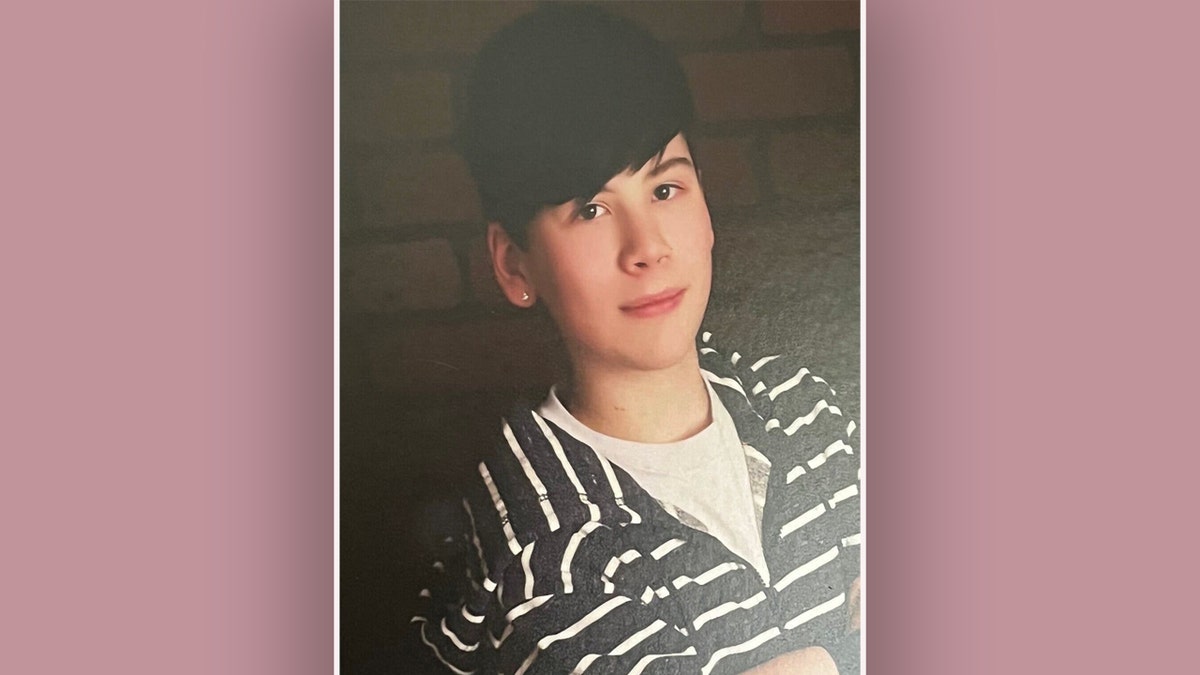
Kobe before transitioning. (Used with permission) (Fox News Digital )
"It was constant brain fog. I was psychotic at some point. A lot of men that I know who went through this hormone replacement therapy, it's the exact same thing for them. Estrogen just makes them snap."
Kobe also developed an eating disorder after taking the hormonal drugs because of the issues it caused on his metabolism.
"The way that your metabolism sinks when you go on drugs, it's insane. I had such a hard time maintaining the weight and everything. It led me toward some really dangerous eating disorder behaviors and everything, which I also don't think I would have ever gotten into if it wasn't for the trans stuff. And not being able to keep the weight off with the blockers and stuff like that."
He describes how his treating practitioners glamorized the idea of having surgery.
"The plan was always estrogen and then SRS (sex-reassignment surgery)," he said. SRS inverts male genitalia to create a neo-vagina, which must be dilated for the rest of a patient's life.

Parents around the country have protested the inclusion of gender ideology in schools. (iStock)
The letter approving the surgery said hormone replacement therapy was successful for him, and that Kobe was happier and mentally stable.
"None of it was true. I wasn't mentally stable. I hated myself. I wanted to die, and I just was constantly trying to become something that wasn't. And it was awful. It was dissociating, it was terrible. But . . . and I'm sorry that – the estrogen – I lost my train of thought . . . ."
The surgery was scheduled but had to be canceled because of an insurance issue. So, Kobe opted for an orchiectomy procedure – the removal of the testes – as a "middle ground." At the time, he viewed testosterone as a "poison" for his body.
"That's how deluded my head was, that testosterone is poison, and it's damaging and everything," he said.
Kobe also recounts how he was told by medical professionals that the orchiectomy surgery would help him in the interim of getting SRS.
"It didn't. Now I'm just sterile, and I don't have an endocrine system, really. I mean, I do, but it doesn't self-regulate and everything."
Without gonads, Kobe will have to take testosterone artificially for the rest of his life, which he started doing recently.

Kobe said he will have to take testosterone artificially after getting castration surgery. (Fox News Digital)
"Honestly, I feel alive again," he said about being on testosterone. "I feel energetic. I feel confident. I just, I feel great. And it just goes to show that cross-sex hormones are bad. They're just bad."
He said that after getting the surgery, the area is still sore, and he experiences random sharp pains, especially when he is intimate. Kobe also described issues with urinating.
"I don't think it'll ever not be an issue," he said. "I made the decision. I accept that and everything. It's just something that I have to live with now."
"I know now that so many people end up taking their own lives after the surgery. And honestly, if they had allowed to invert my genitalia into what looked like a female genitalia, I don't think I would be here in a couple of years, honestly, because there's no undoing that."
Kobe had family acceptance and "passed" as a girl. However, after all the interventions, he was still unhappy.
"I lived in denial for a bit, and I think a lot of people do before they de-transition," he said. But then he took a step back and looked at the entire ideology.
"I just realized how insane it was. I mean, people were saying trans women get periods, [they] deserved to be in women's sports, women's locker rooms with their male genitalia just swinging out, that trans women deserve to be in women's prison and stuff. I just saw that the rights of trans people were overtaking the rights of women, actual women. And I just couldn't justify any of that," he said.

Lia Thomas looks on from the podium after finishing fifth in the 200 Yard Freestyle during the 2022 NCAA Division I Women's Swimming & Diving Championship at the McAuley Aquatic Center on the campus of the Georgia Institute of Technology on March 18, 2022, in Atlanta, Georgia. (Mike Comer/NCAA Photos via Getty Images)
As for what he plans to do in the future, Kobe loves science. He intends to pursue a career where he can care for animals.
"I'll do biology, and then I'll go for a year for zoology or something like that. I really want to work with endangered species and stuff like that. It's just reconnecting with stuff that I used to enjoy before getting sucked into all of this. Because the time I lived as trans, I had no hobbies or interests – I had nothing, really. It was just becoming this caricature of a woman and everything that's based around that."
CLICK HERE TO GET THE FOX NEWS APP
When asked about what he wants people to know about him, Kobe said, "I just want [people] to know that I am strong. I see myself as very strong for what I went through. I'm a pretty compassionate person. I do care about kids that are suffering with gender dysphoria and everything. And I think that they deserve help. But I don't think that that helps."
If you are having thoughts of suicide, call or text 988 to reach the National Suicide Prevention Lifeline or go to SpeakingOfSuicide.com/resources for a list of additional resources.







